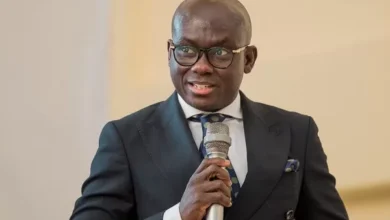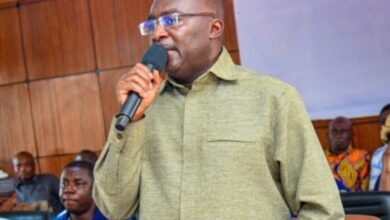CDD Boss Demands Public Access to CJ Removal Findings
CDD Director Urges Full Public Disclosure of Evidence and Grounds in CJ Removal Cases

- Professor Prempeh demands public access to findings
- He proposes excluding sitting judges from committees investigating removal petitions
- Prempeh advocates for a more neutral and politically inclusive process for selecting members
The Executive Director of the Ghana Center for Democratic Development (CDD-Ghana), Professor H. Kwasi Prempeh, has raised alarm over the opacity surrounding the removal of superior court justices, particularly in the wake of the recent suspension of Chief Justice Gertrude Araba Esaaba Sackey Torkornoo.
He is calling for greater transparency and institutional reforms in the process.
In a pointed critique, Prof. Prempeh addressed the current framework under Article 146 of the 1992 Constitution, which outlines the procedure for removing judges, including the Chief Justice.
“I have at least two problems with Article 146 in its current form,” he stated. “First, there is a lack of transparency in the removal petition process. Even if proceedings must be held in camera, the findings and the outcome, including the grounds and evidence for the petition, should be made public afterward.”
He emphasized that public trust in the judiciary is closely tied to transparency. “The public deserves to know why a removal petition succeeded or failed,” he added.
“It’s crucial for the grounds and supporting evidence of the committee’s decision to be made available, so the public can independently assess whether justice has been served.”
Additionally, Prof. Prempeh criticized the composition of the five-member committee responsible for investigating removal petitions, especially in cases involving the Chief Justice. He argued that no sitting judge should sit on such a committee when the petition concerns the Chief Justice. “Judges who are judicial peers of the CJ should not be involved in judging their colleague or ‘boss’ due to potential conflicts of interest,” he explained.
As an alternative, Prof. Prempeh suggested appointing retired jurists or career public servants to the committee, ensuring a neutral and politically inclusive selection process. He also recommended that the President’s role in the removal process be limited to implementing the final decision of an independent committee.
Background: CJ’s Suspension
On April 22, 2025, President John Dramani Mahama suspended Chief Justice Gertrude Torkornoo after a prima facie case was established based on three separate petitions seeking her removal. The suspension followed consultations with the Council of State and is in line with Article 146(6) of the Constitution. Justice Paul Baffoe-Bonnie, the senior-most Supreme Court justice, has been appointed Acting Chief Justice.
A five-member committee has been formed to investigate the allegations, but the absence of public disclosure regarding the details of the petitions and the evidence presented has sparked concerns among legal experts, civil society, and the public.





